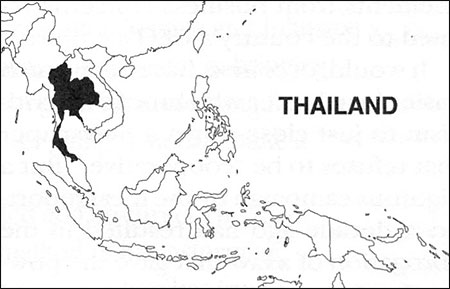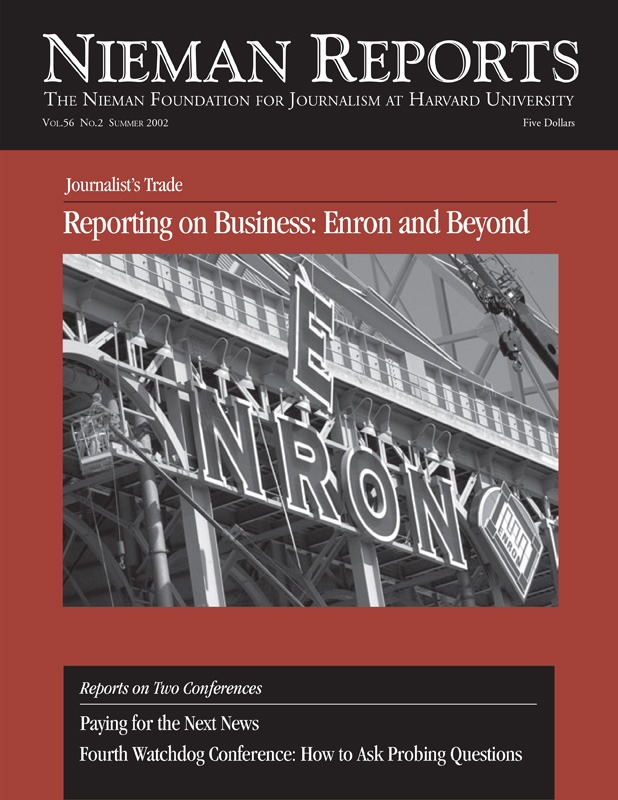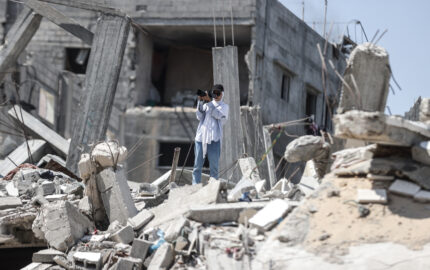
The paradox is highly disturbing for a country that boasts an enviable free press in Southeast Asia. Thailand is supposed to be on the road of political reform under one of the most liberal constitutions. For the first time, protection for professional journalists in pursuit of their investigative reporting is clearly spelled out in the Constitution. And ownership of the broadcast media is to be privatized to ensure the sanctity of the public’s right to know and access to information. The country’s broadcast frequencies are going to be deregulated and laws enacted to break the tightly held monopoly.
But doubts are growing as to whether the government is serious about reform. In fact, there have been clear signs that the press reform agenda has been derailed. And the populist prime minister has placed himself right in the middle of the controversy.
Recently, the Thai Journalists Association felt compelled to issue a statement to protest against what the Thai journalists considered to be the government’s most glaring intimidation of the free press in more than a decade. Generally known to be one of the freest in Southeast Asia, the press in Thailand is under threat, and this time the source of the clampdown isn’t military dictators. It’s from an elected civilian government whose leader, the country’s richest businessman, interprets an overwhelming electorate majority as a license to silence all critics.
Prime Minister Thaksin Shinawatra has virtually complete control over the broadcast media. All television and radio stations are, by law, government-owned and state-run. The only privately owned TV station, iTV, was acquired by the prime minister’s family just before the January 2001 general election. Soon after Thaksin took office in February 2001, a number of television and radio programs containing independent political commentaries were taken off the air, replaced by pro-government news slots. Existing radio program hosts got telephone calls from “people close to the government” reminding them that they were supposed to help the government solve the country’s problems and that critical remarks about the powers-that-be, including interviews with members of the opposition parties, would be considered unpatriotic. This has dealt a fatal blow to the fledging attempt to inject lively debates on TV and radio about the country’s attempt to bring about political, economic and social reforms. The hope for these discussions was to avoid repetition of the 1997 Asian economic crisis that originated in Thailand.
The Thai print media, which have been the traditional bastion against censorship and press muzzling, have come under a more subtle kind of press manipulation. Newspapers considered “critical” of the government have had their advertisements pulled, first by the advertising agency owned by the prime minister’s family, then later by state enterprises under government control. Toeing the government line brings financial rewards. “Friendly” newspapers have been pleasantly surprised by the increased advertisements from business concerns related to the country’s CEO’s empire.
It would, of course, have been much easier for a leader who brooks no criticism to just close down a newspaper that refuses to be “cooperative.” But a vigorous campaign by the local reporters a decade ago had resulted in the abrogation of a law that gave the powers that be such all-embracing control over the print media. But power-hungry politicians will always search for legal loopholes and hidden tools to scare off those they can’t get onto their side with money and other rewards. They have resorted to underground methods to discredit and intimidate journalists who insist on performing the task of being the society’s faithful watchdogs. The Anti-Money Laundering Office, which comes under the prime minister’s office, dispatched “confidential orders” to the country’s top commercial banks to hand over the bank statements of certain prominent journalists and their family members. It was, of course, no coincidence that the targeted journalists in this “secret operation” were those who had consistently criticized the prime minister and his cabinet members’ performance.
This happened in February 2002. The timing of this incident was duly noted. The Thai police had, in that same week, just threatened to deport two reporters from the Far Eastern Economic Review for having written an “intelligence” item suggesting tension between Prime Minister Thaksin and the royal palace. This, it seemed, was the culmination of the prime minister’s displeasure with the foreign press that had generally been critical of the Thai government’s overall performance and had cast probing questions about the blatant cases of clear “conflicts of interest” related to Thaksin and some of the businessmen he had named as cabinet members. A special report published by The Economist, offering a critical review of the government’s performance, was also banned from distribution.
The foreign press was castigated for being “ignorant” and “biased.” For the first time in a long while, foreign correspondents who had enjoyed a reasonable degree of freedom reporting from Thailand came under the government’s suspicion of “colluding with foreign business interests” to undermine the Thaksin government. The conspiracy theory did not end there. Local newspapers considered “uncooperative” with the government have been accused of “accepting money from foreign interests” to subvert the current government.
Soon, it was clear that the Thaksin government was paraphrasing George W. Bush’s controversial declaration in the wake of the September 11 terrorist attack: “If you are not on our side, you are with the enemy.” It was also obvious that any reporter carrying out his or her normal duties as a professional journalist would be considered an “enemy of the state.” Editorial independence is frowned upon by editors closely linked to the government.
Thaksin’s party was elected with a staggering majority in the House of Representatives reflecting an unprecedented public support for his populist platform. He rode the wave of a slogan promising sweeping change and reform. The Thai press in general, sensing a major shift in the public mood clamoring for a “new business-oriented manager” in the political arena, gave him the benefit of the doubt for the first few months in office.
But responsible journalists were also posing tough questions about broken promises and underperformance in some glaring areas, especially in the crucial area of economic and political reform. Instead of promoting a national discourse on why some of the major planks in the election platform are beginning to unravel, the Thaksin government chose to shoot the messengers delivering the bad news that some of these grand plans just aren’t working out as promised.
The ongoing clampdown on the Thai press has effectively dimmed one of Thailand’s few bright spots in the wake of a desperate attempt to restore confidence in the future of a country determined never to return to the dark age of “money politics” and press censorship again.
The Thai press has gone on full alert over the revival of government attempts to curtail the public’s freedom of expression and intimidate those who report, analyze and interpret events affecting every vibrant society. This latest episode has taught Thai journalists another valuable lesson: We can never take press freedom for granted, and constant, effective vigilance is the only answer to making sure that the right to disagree with the establishment will always be with us.
Suthichai Yoon, a 1980 Nieman Fellow, is group editor in chief of Nation Multimedia Group in Thailand.



